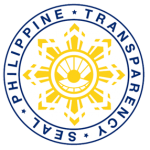The DA-Philippine Carabao Center (DA-PCC) flexed about the beneficial impact of the Milk Feeding Program on nation-building and stakeholders’ well-being, citing that the program provided a total gross revenue of PHP1.9 billion to 45 assisted cooperatives nationwide from its inception in 2019 to the first quarter of 2022.
This was reported by Joel Cabading, DA-PCC’s milk feeding coordinator, on the first day of the two-day program titled “#WeFlex: Stakeholders Milk Feeding Program Achievements and Policy Consultation” held on August 22-23 at the agency’s national headquarters and gene pool in the Science City of Muñoz, Nueva Ecija. It was participated in by officials and employees of the Department of Education (DepEd), Department of Social Welfare and Development (DSWD), DA-PCC, and some partner-carapreneurs.
Rolly Mateo, chairperson of Bantog Samahang Nayon Multipurpose Cooperative (BSNMPC), and Janice Domingo, general manager of Nueva Ecija Federation of Dairy Carabao Cooperatives (NEFEDCCO), corroborated the report and shared their respective testimonies and success stories regarding the program.
Mateo averred that their income from the Milk Feeding Program enabled them to purchase vehicles for the delivery of milk, a packaging machine, a baking facility, and six hectares of farmland. It also created employment opportunities as they hired 116 workers for the venture.
Domingo proudly shared that the Milk Feeding Program had helped their federation's assets increase from PHP8 million in 2018 to PHP28 million in 2021. It even provided jobs to 200 people in their community and with the income they earned, they were able to renovate their office to a three-story building. She also admitted that the program helped them bounce back as they were ensnared in financial distress before they ventured into the feeding program.
“It’s not about the DA-PCC but rather the effects that we planned to create side by side with our accountability partners that is to help curb the nutritional deficiencies of children and at the same time create livelihood opportunities for farmers through the National Feeding Program led by the DepEd and DSWD,” DA-PCC Executive Director Dr. Liza Battad said.
Meanwhile, DepEd-Bureau of Learner Support Services Director Dr. Lope Santos III and DSWD Supplemental Feeding Program (SFP) Unit Head Ma. Elena Carreon gave their respective messages of support for the implementation of the 2022 School-Based Feeding Program and 12th SFP Cycle, respectively.
A policy consultation will be held on the second day wherein among the slated topics for discussion include Food Science of the Milk Feeding, Updates of Costing, Standardization of Milk Formulation, and Different Milk Product Terminologies.
The participants will also present the draft revised Milk Feeding Program Policy and Guidelines for finalization and approval. The stories of the BSNMPC and NEFEDCCO are only two of the many successes in the implementation of the Milk Feeding Program. They serve as concrete proofs of the planned effects of the national feeding program that are worth flexing and sustaining.












